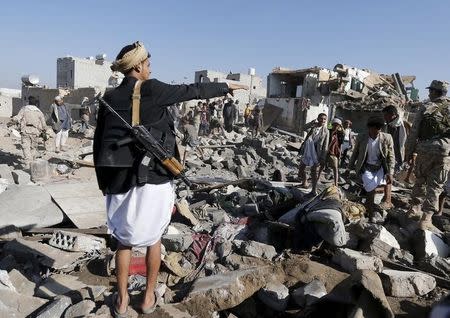More teenage recruits as Yemen conflict intensifies, UN says

By By Tom Esslemont LONDON (Thomson Reuters Foundation) - All warring sides in Yemen are increasingly using teenage boys to swell their ranks as fighting intensifies, the U.N. children's agency (UNICEF) said on Thursday. Fighting began to spread across Yemen last September, when Houthi rebels seized the capital, Sanaa, and began to fan out across the country, forcing President Abd-Rabbu Mansour Hadi from his seat of power. During the same period UNICEF said it had documented 144 cases of recruitment of boys under 18. The agency said the rate of child recruitment had increased by 47 percent in 2014 from the previous year. "Joining the armed forces and armed groups is often seen as a way to support families and the exacerbation of the conflict has increased recruitment opportunities," Micaela Pasini, the agency's head of child protection in Yemen, told the Thomson Reuters Foundation. The U.N. Security Council said in 2014 that Houthi rebels, al Qaeda in the Arabian Peninsula (AQAP), government forces and supporting militias were all responsible for recruiting children. "Cultural norms combined with extreme poverty have compelled children to take on the role of breadwinner, including by joining the armed forces and armed groups," Pasini said. She said the numbers were probably just the tip of the iceberg, because in many cases families might not be willing to report recruitment for fear of retaliation. UNICEF data reveals how other aspects of the conflict are having an impact on children, including attacks on schools and hospitals and a rise in reports of sexual violence. "We have heard children raise concerns about returning to school, fearful it may be attacked," Pasini said. Last Sunday the United States evacuated its remaining personnel, including about 100 special operations forces, from Yemen because of the deteriorating security situation. "Yemen needs support of the global community more than ever before," Pasini said. "A reduction in aid will result in losses in the gains made so far in the protection and fulfilment of children’s rights." (Reporting By Tom Esslemont; Editing by Tim Pearce)

